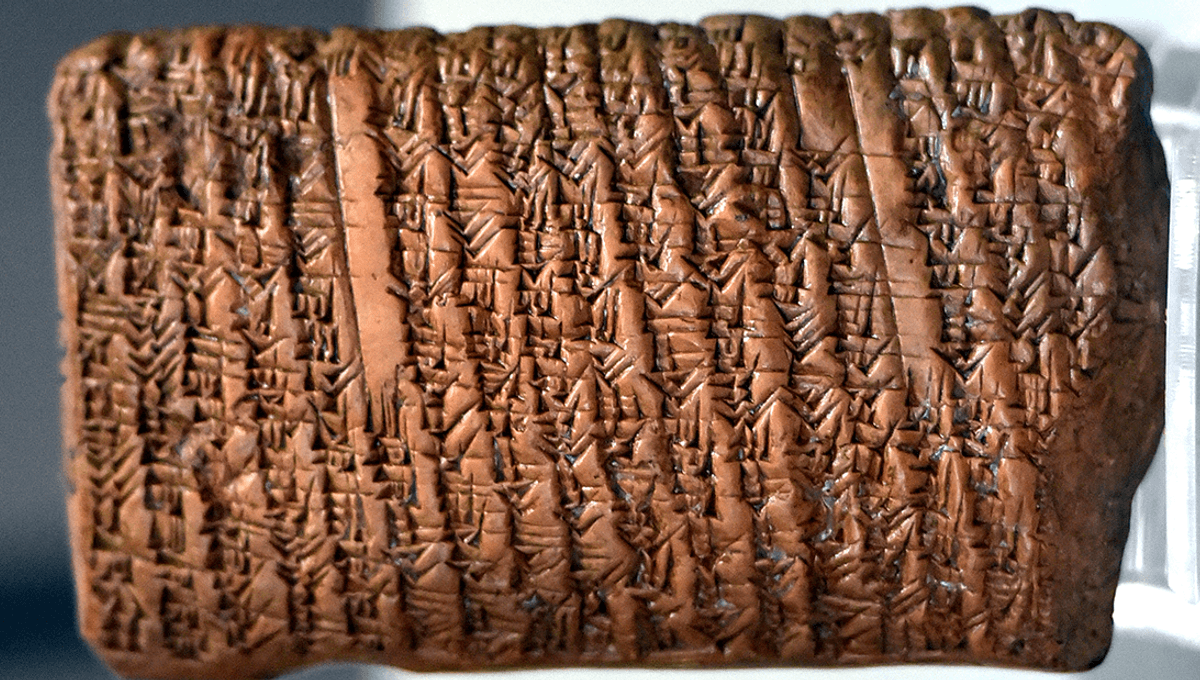Study math for long enough and you will likely have cursed Pythagoras’s name, or said “praise be to Pythagoras” if you’re a bit of a fan of triangles.
But while Pythagoras was an important historical figure in the development of mathematics, he did not figure out the equation most associated with him (a2 + b2 = c2). In fact, there is an ancient Babylonian tablet (by the catchy name of IM 67118) which uses the Pythagorean theorem to solve the length of a diagonal inside a rectangle. The tablet, likely used for teaching, dates from 1770 BCE – centuries before Pythagoras was born in around 570 BCE.



It is. There’s evidence of its use in the Old Babylonian period, evidence in 1800 B.C.E Egypt, India in 700-500 BCE, China during the Han Dynesty at least.
It’s very simple to prove, and anywhere you find squares or triangles in architecture, it was used.
I’m assuming it was discovered multiple times independently. Pythagorean is just the one that wasn’t forgotten.
The Romans built off of Greek culture, Europe built off of Roman culture, the US built off of European culture. US math is very much based on Greek math (and US education in general). You may remember doing Greek proofs in school. Greek math was by no means superior to any other culture’s, it just so happens that US culture descends from Greek culture.
But thank the gods we adopted Hindu-arabic numerals.
ssshh don’t tell the republican bigots they are using terrorist numerals ;) /s
We do, then we film the results and laugh.
Then wonder why the r u r a l s don’t like city folk.
to be fair, being “city folk” vs. being “rural” doesn’t really qualify as an excuse for different levels of education. if it is the case anywhere (and admittedly it seems to be) that’s a testament to the need for improvement of the education system.
Availability of schools and ability (or willingness) to pay for good teachers very much does correlate to levels of education available in different places.
You’re not wrong. Nasty negative feedback loop :(
Pretty sure the Summarians were doing astronomy, they probably had all sorts of geometry figured out.
At some points it was “superior”. Elements was used as a textbook throughout Europe and the Arab world, because it was one of the first and few books with rigorous proofs. If course it was probably compromised of previous works, but there was really nothing else like it.
The Han Dynasty started in 202 BC. That’s after Pythagoras died. Not the same thing.
My point was they likely used it independently.